ICEF Students Share Impressions of China’s Top Summer Schools 2024
This summer, a total of 24 bachelor’s and master’s students of ICEF went to China to do summer courses at some of the country’s best universities. We talked to some of them to find out about their experience.
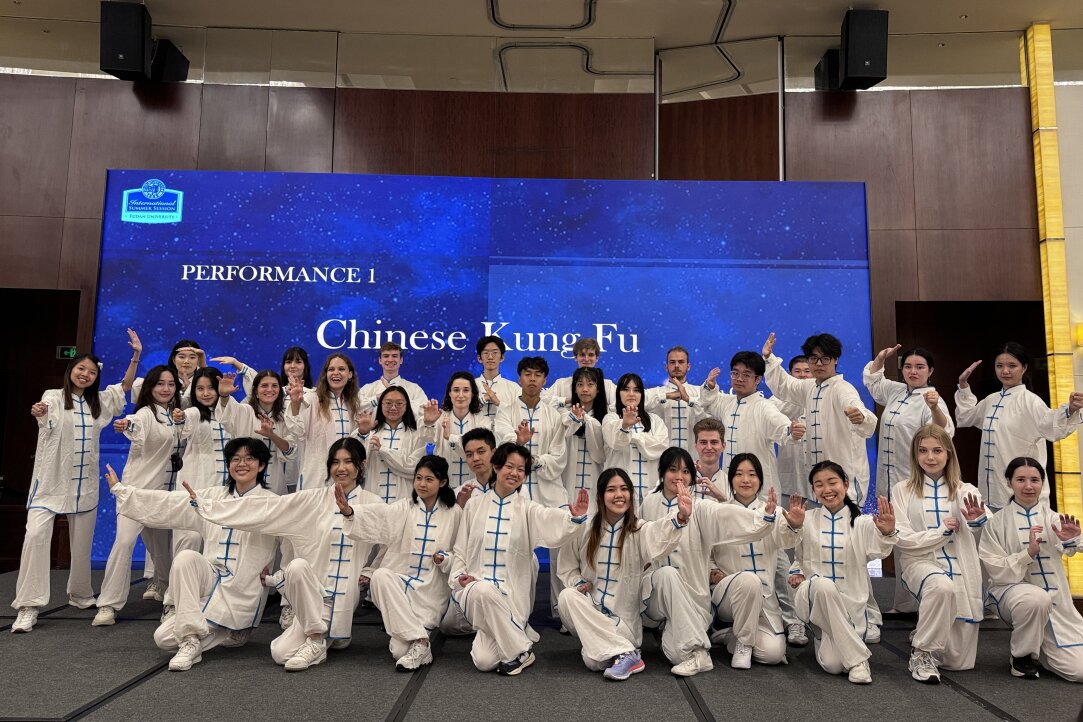
Fudan University Summer School (Shanghai)
Mikhail Korzh completed his bachelor’s studies a year ago and is going into his second year of master’s courses at ICEF. One of the brightest master’s students, Mikhail’s performance in Semester I earned him a place in the Fudan University Summer School in Shanghai.
“China seemed a much more exciting option than Europe or the USA,” says Mikhail Korzh. “More so because we are two different cultures with different mentality. What also played a role was Fudan University kindly paying the tuition fee and ICEF covering my flights and accommodation.”
Here’s how Mikhail describes the programme of his Fudan summer session:
“With some 30 courses, of which you can pick maximum three, this Summer School offers an exceptionally flexible programme. The fields offered include economics, medicine, politics, history, renewable energy, Chinese, as well as dance and kung fu.
I chose to do the courses I was new to – Chinese Economy, Renewable Energy, and Kung Fu. They also had to reflect the distinctiveness of China, and I really liked them all. As an experienced user of English, thanks to ICEF using it as the language of instruction, I didn’t have any difficulty understanding my teachers in China.”
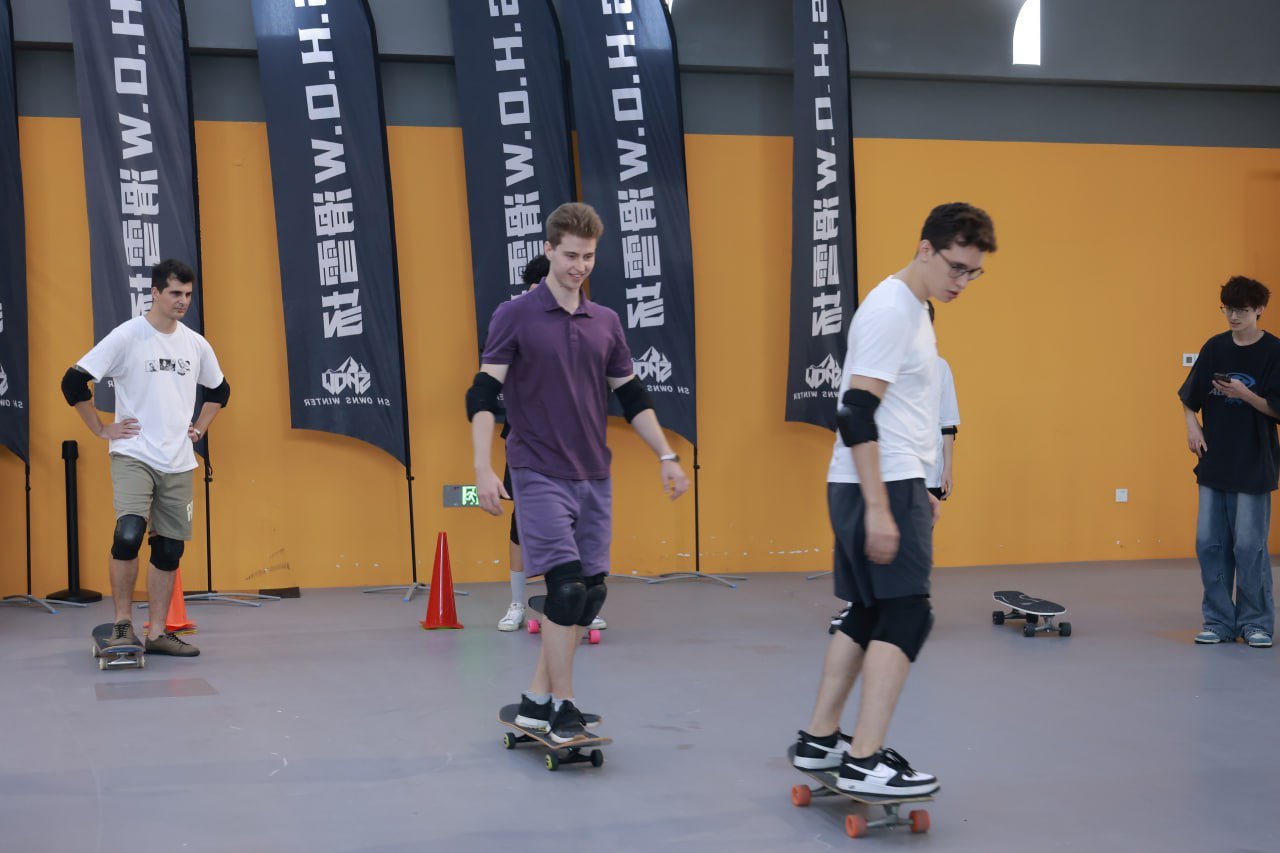
Mikhail, what proved most useful to you learning-wise?
Renewable energy. I very much liked that course. It gave me a thorough insight into the topic. It was likewise great to learn a couple of kung fu techniques. As for the Chinese Economy, it broadened my understanding of the processes governing China’s economic reforms, demography, real estate market, etc.
But most importantly, I got the living abroad experience, communicating solely with foreigners during my whole stay.
Was there anything in the Fudan summer school that inspired you to try new things?
My experience in Fudan summer school has led me to believe I should continue my studies abroad. It’ll do me good to step outside of my comfort zone and meet new people. I think I’m going to find a suitable PhD programme and do my next degree abroad.
SWUFE RIEM Summer School (Chengdu)
Maria Rogotskaya won a place on the summer programme of Chengdu-based Southwestern University of Finance and Economics (SWUFE) after her third year of study at ICEF as the best-performing student of ICEF Academia, an advanced programme additional to core coursework.
Maria says she best performs in courses that require intuitive understanding – Macroeconomics and finance-related courses. “What I like most about ICEF is being part of its community," she says. “Having alumni for teachers is cool. They are easy to communicate with.” Easy was Maria’s communication also with the students of the summer school: she studied together with people from NES and a university in Hungary.
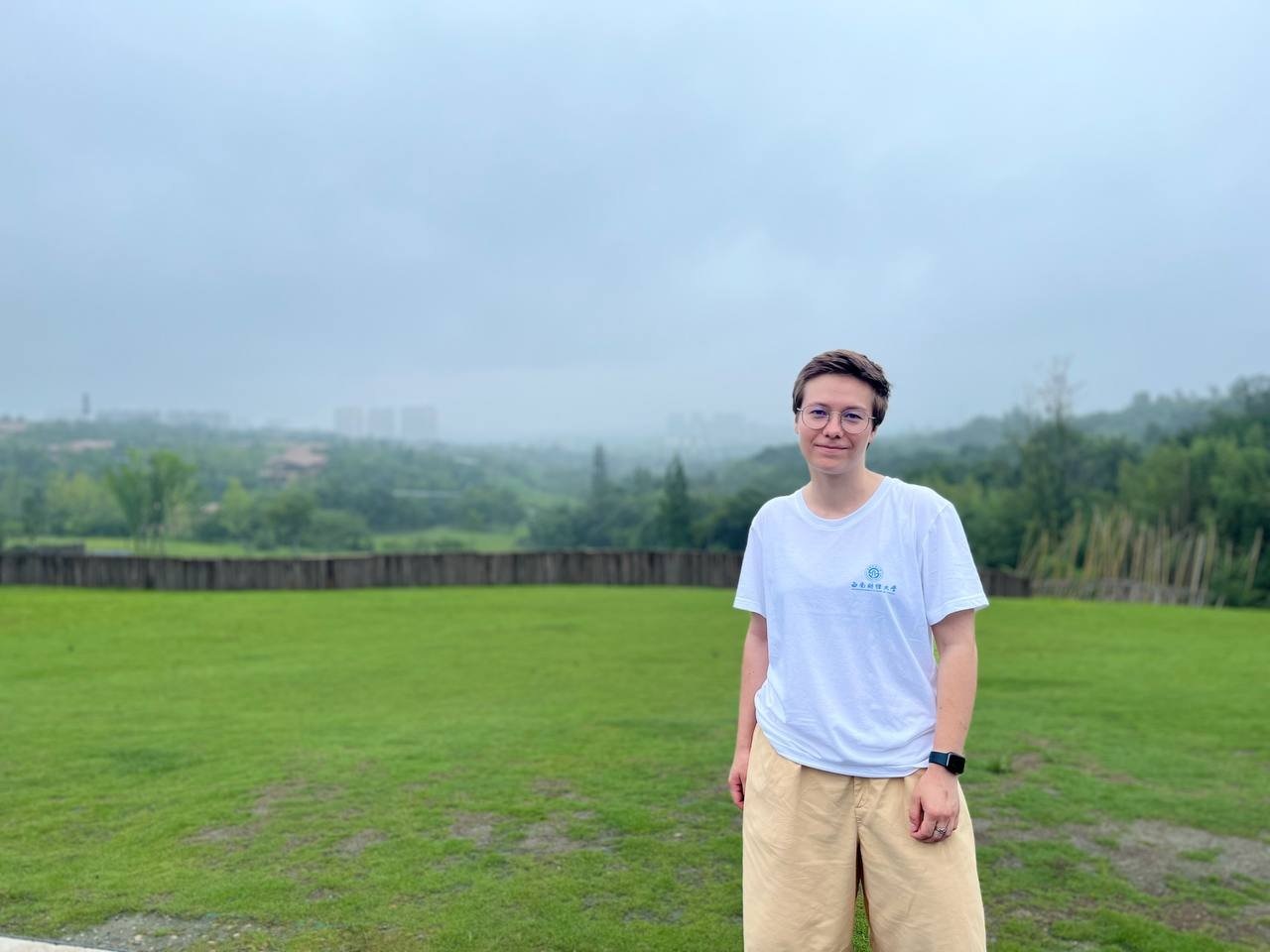
“SWUFE has two campuses,” says Maria. “We studied in the larger one. With a pond in its territory, inhabited by geese, it’s simply huge. But most of all I loved its library. It’s huge, too, and its upper floor offers printed journals – The Journal of Economics, AER, QJE, among others. Another thing I liked about the campus was that people there use mostly bicycles and mopeds, there are very few cars there. And there are great sports facilities on campus. I played lawn tennis, and some of us went to the pool and played basketball or badminton."
In addition to studying on campus, our students were able to explore the city of Chengdu. “Chendgu’s metro has a lot of lines, so it was no problem to go anywhere we wanted within the city,” says Maria. “We walked the inner streets and more popular tourist places like Jinli Street. We even went to the Sichuan Opera. On the last day of our stay we went to the tea market and spent two hours just enjoying ourselves and choosing tea grades to drink.”
Andrey Okhlopkov is going into his third year at ICEF. Like Maria, he excelled in ICEF Academia and was prized with a place in SWUFE Summer School.
Here’s Andrey’s impressions of SWUFE:
“I was struck by its phenomenal scale. With multiple academic facilities and dormitories, SWUFE is like a stand-alone district within the city limits. It has three large canteens, shops, cafes, laundries, sports fields, and more. It is exactly the place to explore the many sides of life in China, alongside the Chinese economy and politics, which were the focus of our lectures.”
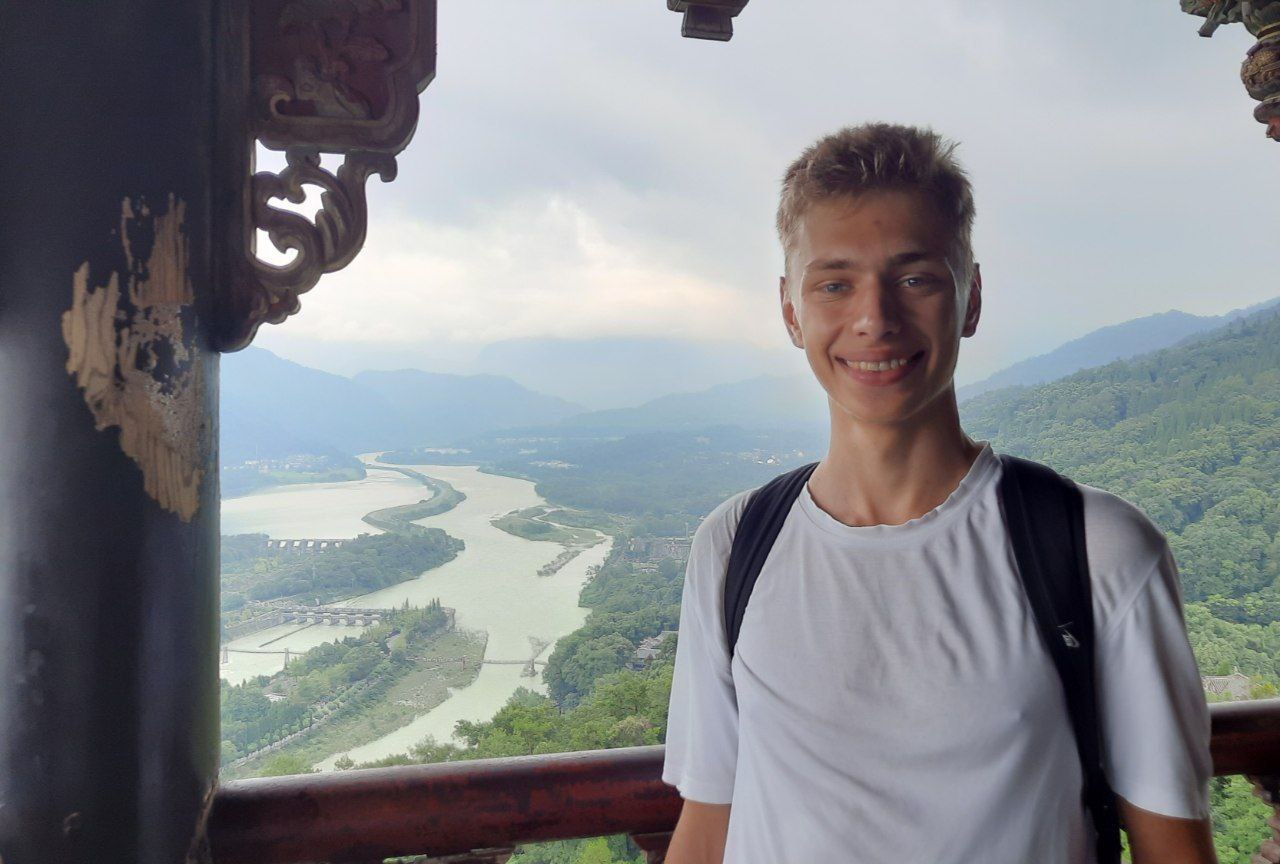
“The most important asset I have gained there is enormous cultural experience and more profound understanding of this country. China is a completely different world. It can’t be apprehended without actually being there and meeting its people. In this sense, the summer school proved a great opportunity for me to see how different we all are and yet how much we have in common. Humans’ ability to find common ground and negotiate cannot be overestimated.”
Andrey’s answer as to whether our students liked the Chinese food was probably the most telling: “The Chinese food is a topic of its own. We went from liking it to detesting it and adoring it again over those two weeks.”
Another ICEF student to have joined the SWUFE Summer School in Chengdu is Anastasia Dergileva. Currently in her third year of study, Anastasia owed the opportunity to her excellent progress at ICEF Academia. By the way, when asked about why she chose ICEF, Anastasia said she was attracted by the reputation of its faculty, alongside solid grounding in economics and mathematics, English as the language of instruction, and the benefits of doing extra courses as a student of ICEF Academia.
Like her fellow students, Anastasia couldn’t help mentioning the size of SWUFE. “The abundance of wildlife and natural landscapes on campus came as a nice surprise,” she says. “I found myself inside a spacious city with every convenience one can think of. Along with dorms and study buildings, SWUFE houses multiple canteens, supermarkets, hardware stores, hairdresser’s parlors, a hospital, a post office, gyms, football fields, basketball courts and some dozen of tennis courts. Two weeks were surely not enough for me to explore the whole of SWUFE premises.”
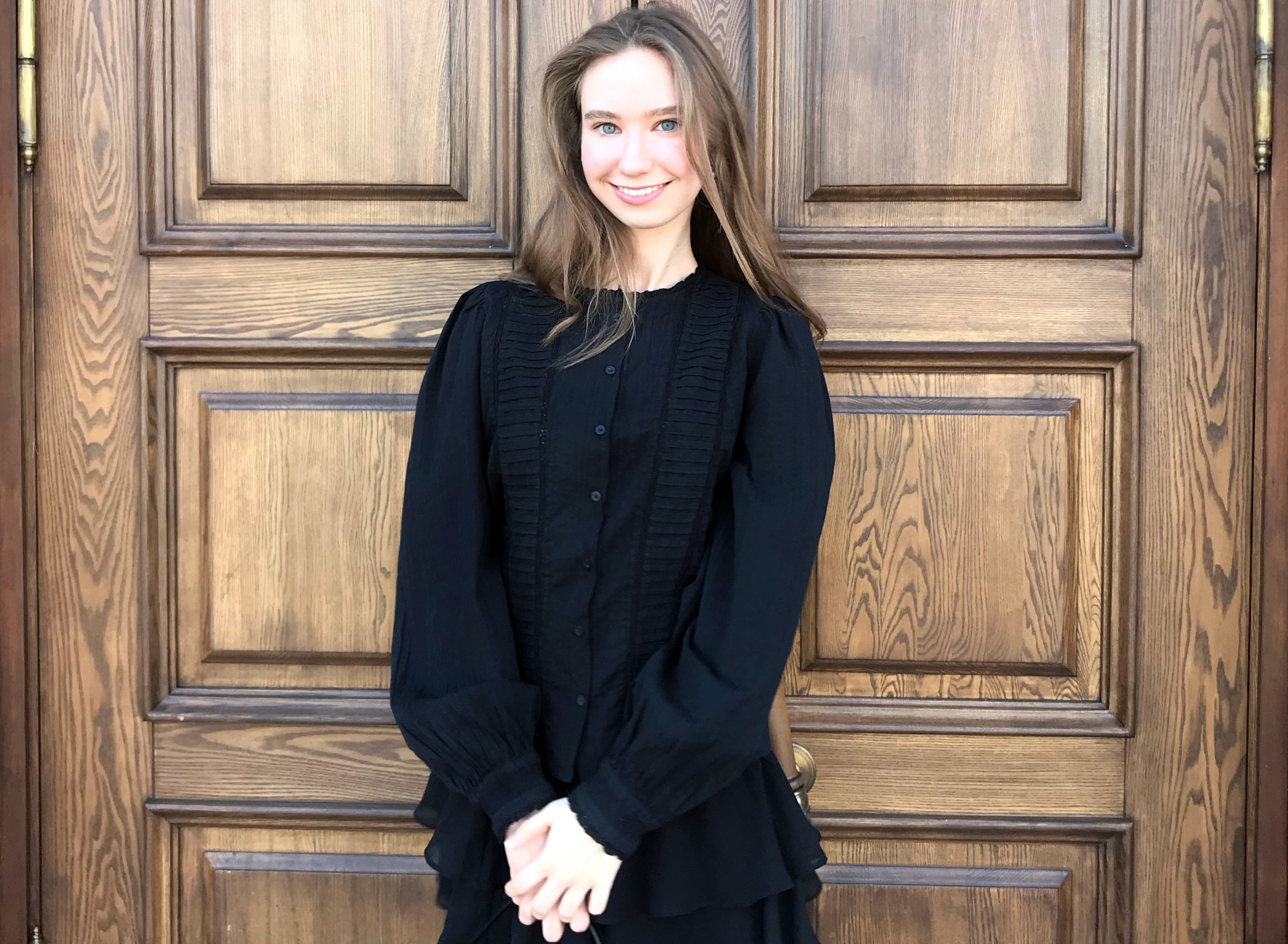
Anastasia says the people in her group, from Russia and Hungary, communicated just fine, advising one another on tourist destinations to visit – Panda Base, Dujiangyan Irrigation System, Museum of Modern Art, and more.
Anastasia, what is your most important takeaway from the summer school you joined in China?
Open up to the world and the world will open up to you. We shouldn’t be afraid to seek assistance in a different culture. Explore and try new things even if you don’t speak the language.
SWUFE SBA Summer School (Chengdu)
Sophomore Alexey Nikolaenko passed selection and joined SWUFE SBA (School of Business Administration). He especially highlights the benefit of meeting Chinese companies as a way to learn about the Chinese organization and management style from employees themselves:
“Our study routine included one or two lectures on the Chinese economy or culture. The topic I found most interesting was why the country needed digital yuan and how it works. Tours around companies took place almost every day. We have been to many and their office environment turned out a sheer delight. Take the inside garden on Level 3 alone!”
Alexey says he very much enjoyed the friendly atmosphere and quality reception:
“We were a diverse group of students from Korea, Thailand, Belgium, Croatia, Brazil, Slovenia, and China. Everyone I met there was kind and open-minded. The teachers and the volunteers were just as welcoming and friendly. I was able to communicate with local guys. We even did a horror quest together.
We’ve shared so many good times and adventures on that trip that I want to go there again.”
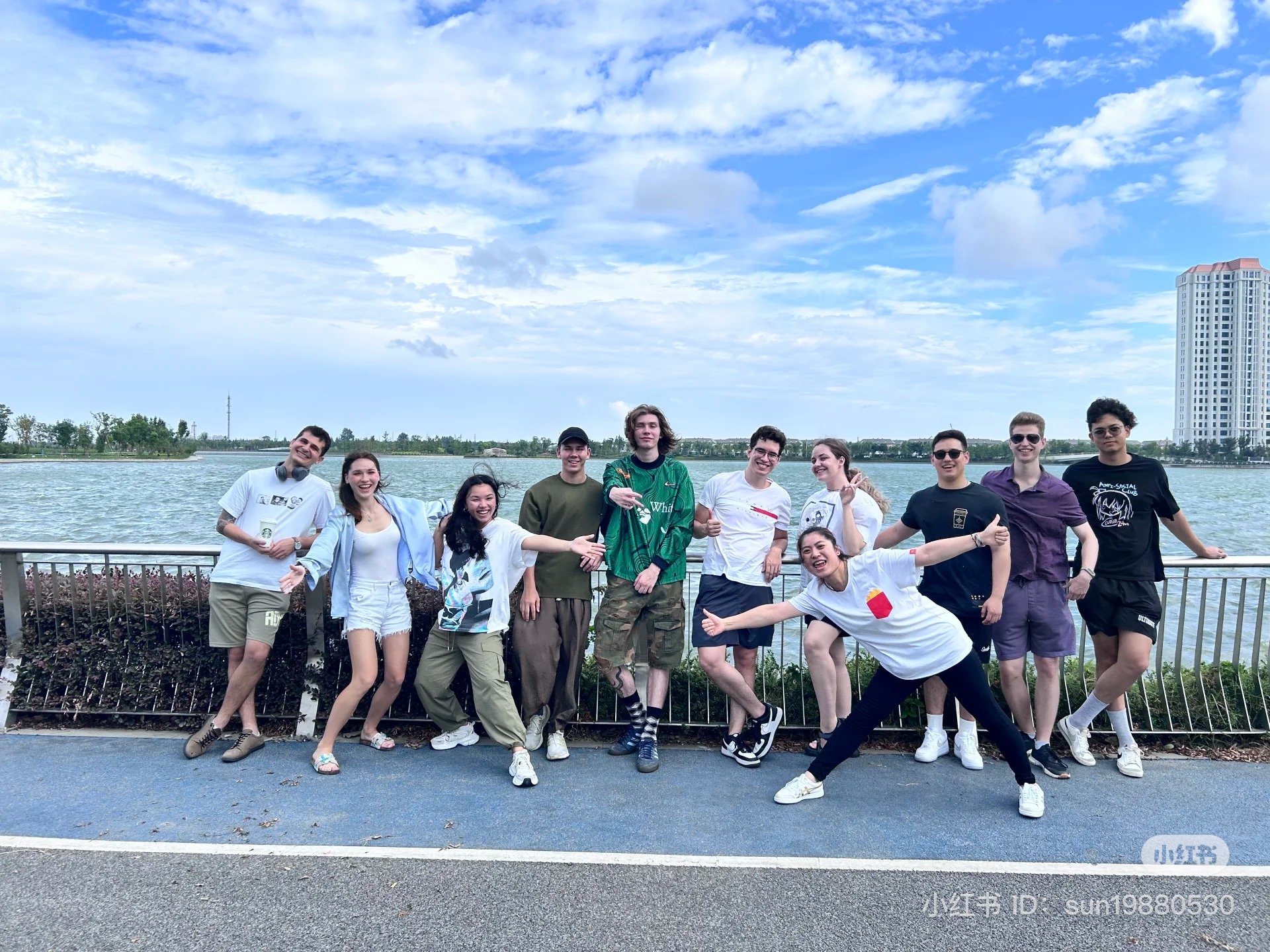
Elizaveta Ulzutueva, who is in her second year of study, went to SWUFE summer session intending to find out where the Western and the Eastern mentalities differ and to experience the Chinese culture. Elizaveta is now thinking of starting a Chinese language course. “The Chinese is not like other languages. It doesn’t use an alphabet,” she says. “Instead, it uses a beautiful writing system which is difficult to learn and pronounce because there are five tones. A highly inspiring learning experience for me.”
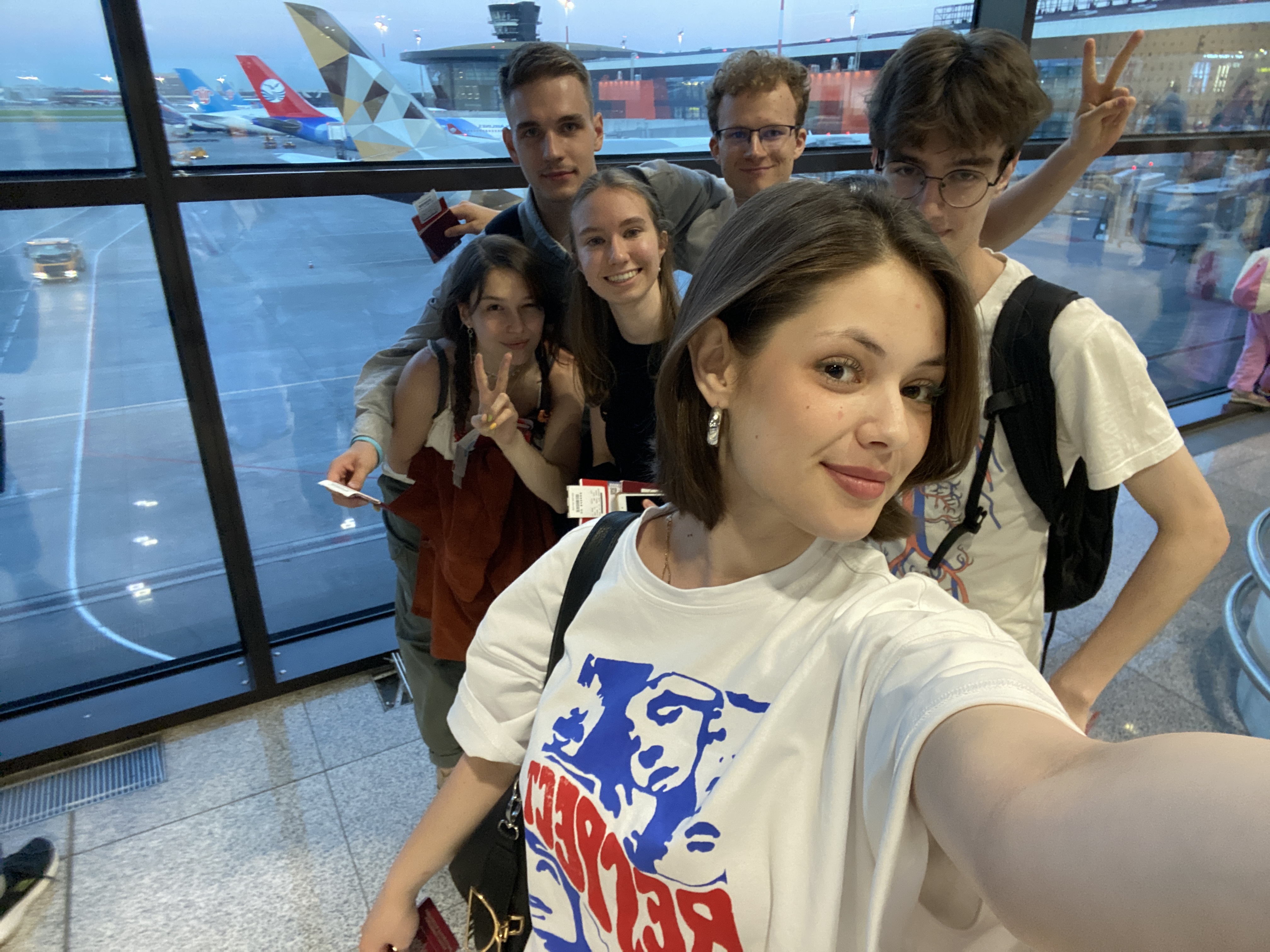
Here’s what Elizaveta found most exciting:
“I was most impressed by SWUFE’s level of technology and modernity. It looks completely new on the inside and on the outside, with modern elevators, lecture halls, microphones, overheads, screens… The technologies are used for the best learning experience. Our lecturers used diverse forms of interaction, some splitting us into teams to do group assignments with follow-up presentations. The hotel we lived in offered European breakfast of the highest standard. We lived in double rooms and were served by friendly staff. There was a gym in our hotel.
We had everything we needed. Our biggest thank you to SWUFE and ICEF.”
SJTU ACEM Summer School (Shanghai)
Master’s students Mikhail Mironov and Danila Karapsin did their summer courses at Shanghai Jiao Tong University Antai College of Economics and Management. Here’s how they studied in Shanghai, if they are going to continue their Chinese classes, and how to make traditional Chinese dumplings.
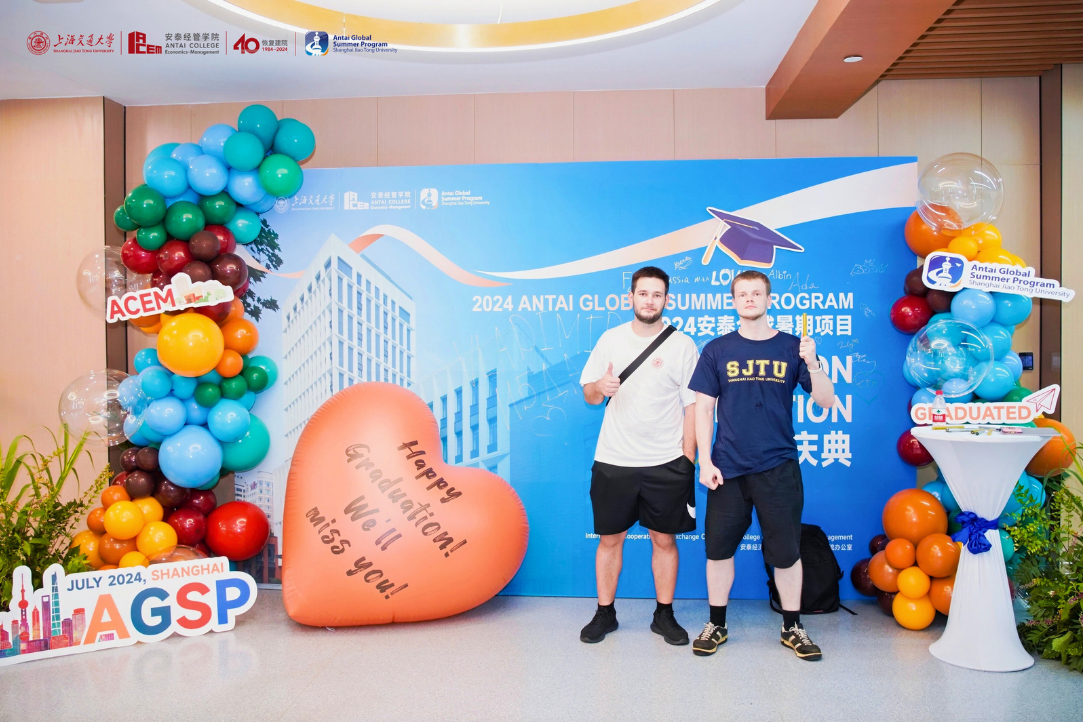
Mikhail Mironov, who is originally from Saint-Petersburg and in his second year of master’s study at ICEF, double majors in Economics and earned his bachelor’s from HSE St. Petersburg and the Universitat Pompeu Fabra in Barcelona. Mikhail was able to complete The Experts School of Quants with honors and juggles studies with work at HSE Laboratory of Artificial Intelligence in Mathematical Finance.
ICEF is known for its demanding schedule, requiring commitment and self-discipline. Instead of taking a vacation you chose to spend July doing courses in China. Why?
First of all, I was attracted by the idea of meeting some of the best students from around the world. China looked a tempting destination, I had never been there before. The summer school was my opportunity learn more about the history and economy of China. I thought it would be a mistake to miss such a great opportunity, especially with ICEF covering my flights, accommodation, and tuition.
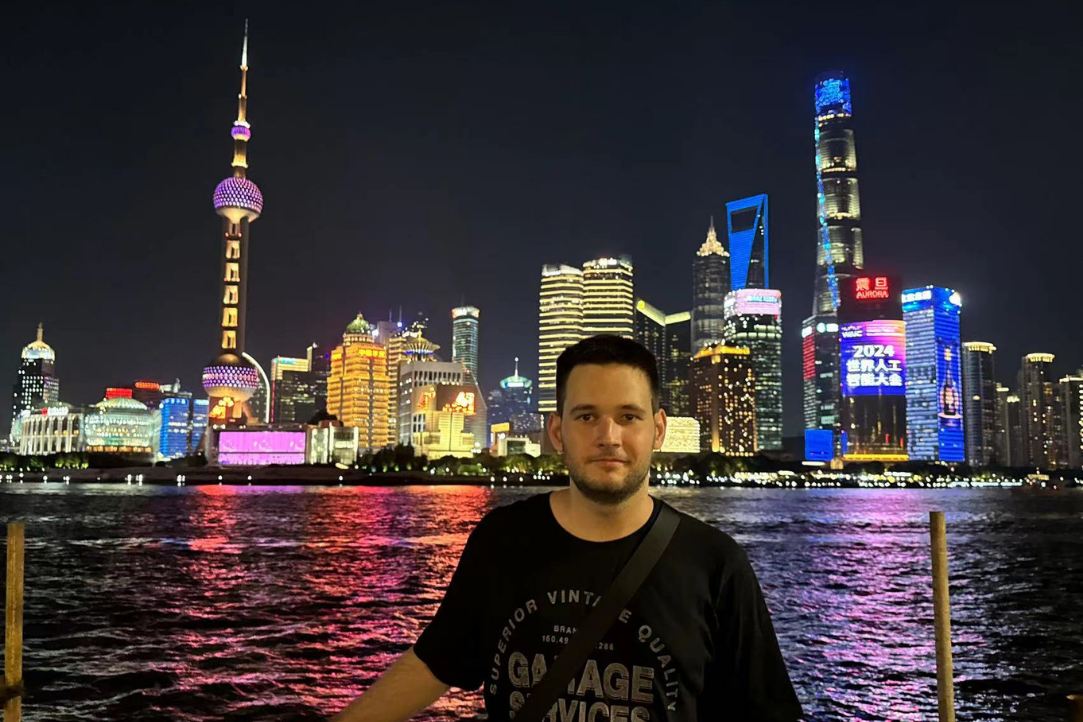
Can you tell about the people you studied together with?
That summer session had 44 students from 18 countries, of different age and from different backgrounds. Those were bachelor’s and master’s students from different schools including University of Calgary, University of Sydney, LUISS Business School, University of London, University of British Columbia.
What were the highlights of your programme?
The programme featured lectures, cultural events and tours. It delivered a series of talks on the history and economy of China and offered Chinese classes. I am now able to introduce myself and ask common questions in Chinese!
One enriching experience was a tour of Huawei R&D facility. Also, we have been to MiHoYo, a computer game developer, and ZPMC – world’s largest manufacturer of port facilities and marine equipment.
Those three tours formed part of our assignment to work out, and present, some possible ways of integrating the economy of our chosen country with that of China. At the farewell dinner, we all learned how to make traditional Chinese dumplings. They taste delicious.
You mentioned Chinese dumplings. How did you like the other Chinese foods?
On my first day in China I went to eat Hot Pot, where they give you pots of bubbling broths and lots of ingredients to use – meat, mushrooms, noodles. I needed time to get used to Chinese food but in the end its tasted quite okay. After all, I ate my breakfasts at the hotel, they were more of what I eat in everyday life.
What is your most important takeaway from this exchange?
Discover new places. I never even thought about going to China. Now I want to learn its language and return to explore more. While communicating with students from across the globe I was able to hone my English. I made friends with people from Australia who spoke Chinese and went to places in Shanghai and its surroundings that were mostly visited by locals.
I am very grateful to ICEF for this opportunity. I met so many interesting people over those three weeks while exploring Shanghai and learning about the history and economy of China.
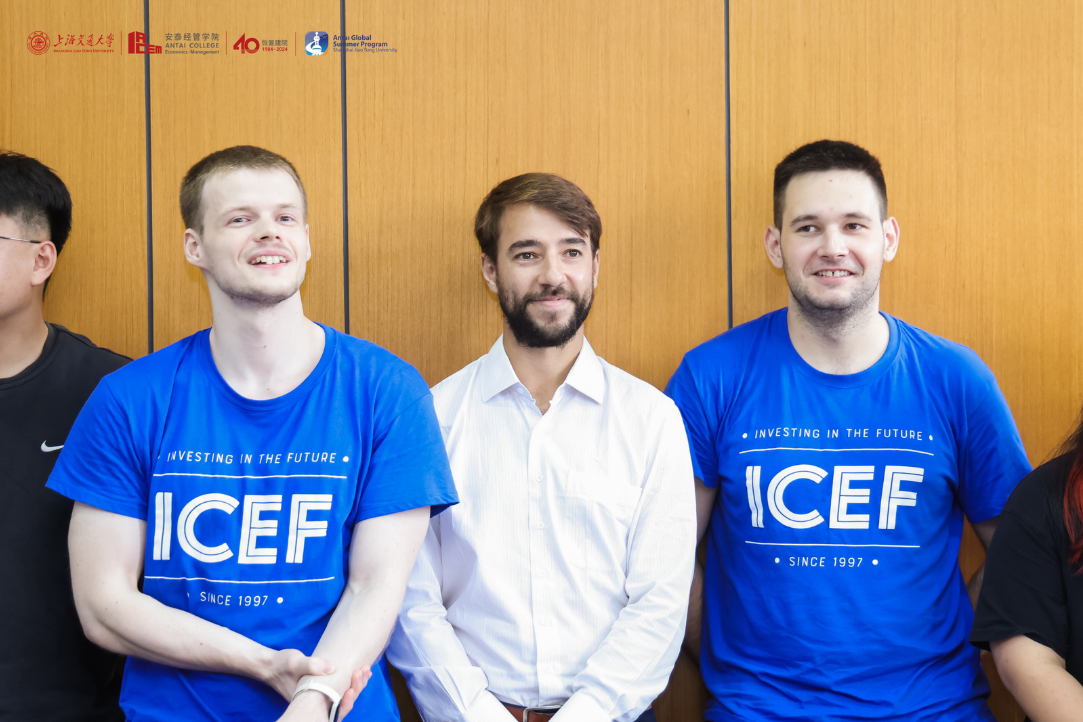
Danila Karapsin came to study in Moscow from Kurgan and has passed his first year of master’s study at ICEF. After completing his bachelor’s Danila started a job as a data analyst at Sber but later decided to do a master’s.
Here’s Danila’s impression of Shanghai Jiao Tong University and its Summer School:
The lectures were delivered by the faculty of Antai College of Economics and Management and focused mostly on the economy and history of China. Some were given by invited experts specializing on ESG, HR, and financial derivatives.
The environment as multicultural as there has its advantages. It gives you first-hand information about the life in different countries and is a chance to hear people discuss current events from multiple perspectives.
The classes that I benefitted most from were Chinese. Even though I managed to memorize not more than twenty words, I was able to use them all while talking to the local people. My experience is that language immersion is simply a must when learning a language as difficult as Chinese. Next time I go to China I’m going to do some homework. The Chinese language turned out to be less challenging than I expected and we at ICEF can learn it, too.
As for the campus, it lies in what formerly was a French compound and looks very European. If it wasn’t for 40°C, the surroundings could well be taken for anything but Chinese.
We lived in a hotel near the campus, recommended by our hosts, not in the dorms. It had all conveniences we needed – buffet breakfast, laundry, air conditioning, even room service robots.
Did you have the time to see more of China?
We explored the capital of the neighbor province of Hangzhou, its Linyin Temple and embankment of West Lake. Some tours formed part of our programme of stay and took us around the town of Wuzhen, Shanghai TV tower, cargo port, etc.
I personally was interested to see non-tourist places – outdoor spaces, driveways, backyards, everything that Chinese residents see from day to day. I did have the time to explore them between programme activities.
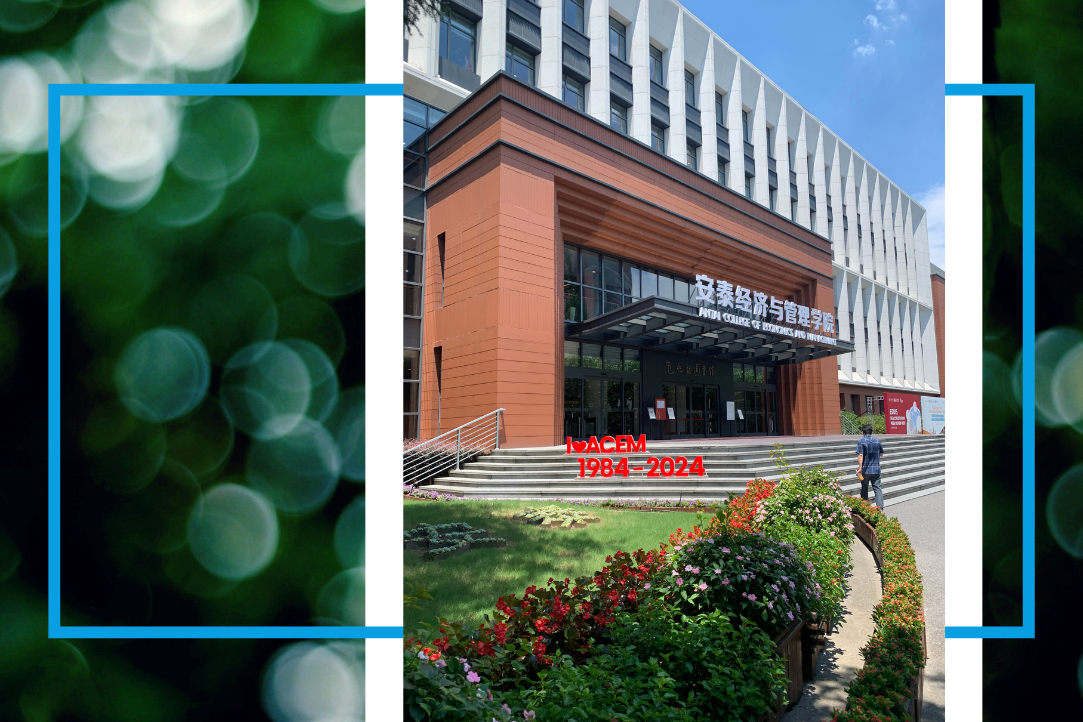
Currently, another group of ICEF undergraduates is up for travelling to China for the courses of the double-degree programme with SWUFE in Chengdu, and there are students who are due for the semester-long exchange.
Apart from universities in China, our students are free to join the summer sessions and exchange with ICEF’s other partner universities – Tilburg University (Netherlands), United Arab Emirates University (UAE), University of Belgrade (Serbia), Istanbul Bilgi University (Turkey) and more. See full list of ICEF partners here.